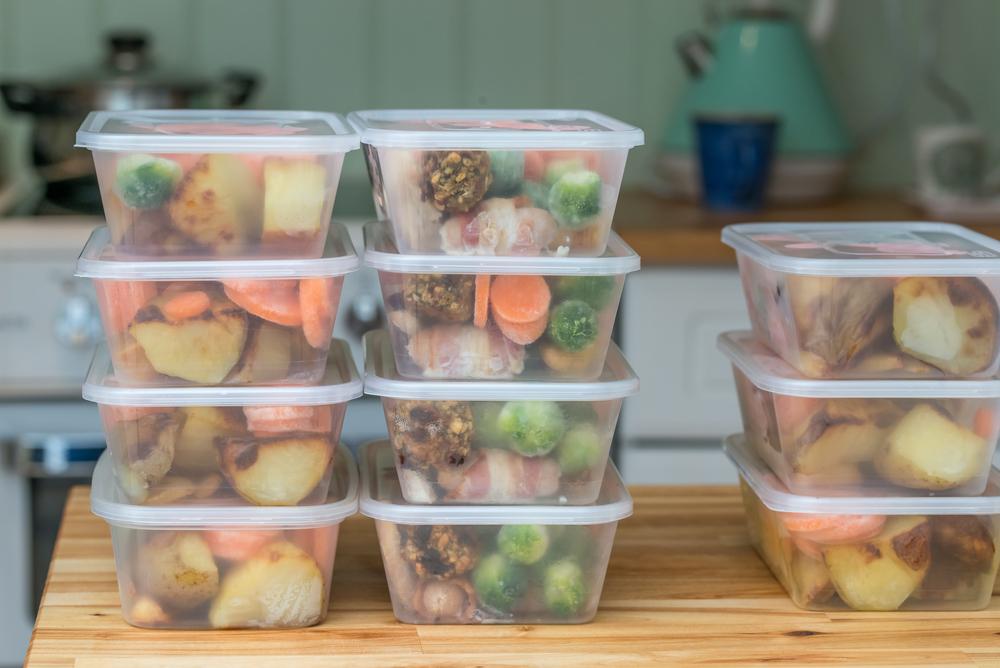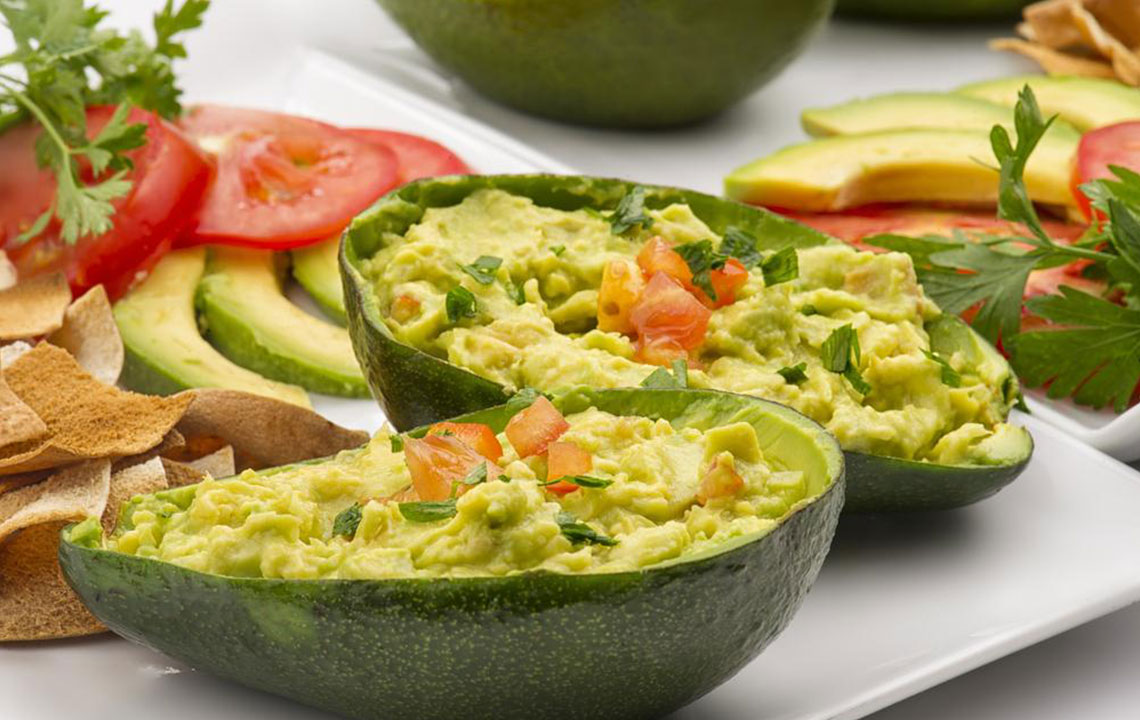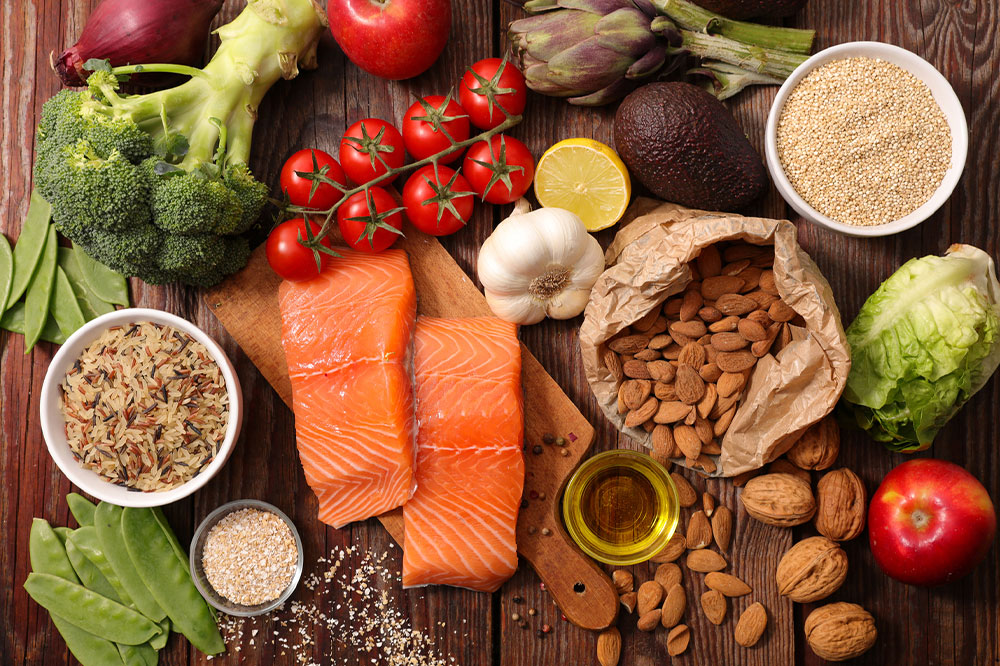Ultimate Guide to Nutritious Low-Sodium Frozen Foods for Healthy Living
Discover the top 10 healthy low-sodium frozen foods that fit into your busy lifestyle. From fish fillets to vegetarian burgers, this guide helps you choose nutritious options with less sodium, supporting heart health and overall wellness. Learn tips for incorporating these foods into your diet for quick, wholesome meals anytime. Perfect for busy families seeking convenience without sacrificing health, these selections are easy, tasty, and nutrient-rich. Make smarter grocery choices today with this comprehensive guide to low-sodium frozen foods, ensuring your diet stays balanced and flavorful.

Ultimate Guide to Nutritious Low-Sodium Frozen Foods for Healthy Living
In today's fast-paced world, frozen meals have become an essential part of many households. They provide quick, convenient options for busy individuals and families who want to enjoy nutritious, delicious meals without spending hours in the kitchen. However, not all frozen foods are created equal. Some are loaded with excess sodium, unhealthy fats, and preservatives that can jeopardize your health in the long run. Thankfully, there are numerous low-sodium frozen food choices that are both tasty and wholesome, making it easier than ever to maintain a balanced diet even during hectic days.
This comprehensive guide explores the top 10 low-sodium frozen food options that are not only healthy but also suitable for a variety of dietary needs. Whether you're seeking seafood, vegetarian options, or quick breakfast staples, you'll discover options that help you limit sodium intake while still enjoying flavorful meals. When choosing frozen food products, aim for those with sodium content of no more than 500-600 mg per serving, ideally lower, with minimal saturated fat and calories. Incorporating these options into your weekly shopping list can elevate your diet, improve your health, and provide your family with nutritious, convenient meals.
1. Fish Fillets
Fish fillets are an excellent source of high-quality protein, omega-3 fatty acids, and essential nutrients. When selecting frozen fish, opt for brands that emphasize sustainable sourcing, ensuring you support environmentally responsible fishing practices. Many fish fillet options are free from common allergens like wheat, eggs, and nuts, making them a safe choice for individuals with food sensitivities. A typical serving of frozen fish fillets contains roughly 150-170 mg of sodium, making them a low-sodium option ideal for heart health and overall wellness. Preparing fish fillets is quick and versatile; you can bake, grill, or pan-fry them with herbs and spices for a delicious meal that fits within your low-sodium diet. Incorporating fish into your meals at least twice a week can significantly boost your intake of essential fatty acids and promote cardiovascular health.
2. Frozen Pizza
Though often viewed with skepticism, frozen pizza can be a part of a healthy diet if you choose wisely. When shopping, look for brands that offer lower sodium options, typically around 300 mg of sodium per serving, and contain approximately 200 calories per slice. Many brands now provide healthier versions with whole grain crusts, vegetable toppings, and reduced sodium content. These options are perfect for quick dinners or snacks when you’re short on time, providing satisfying comfort food without overloading on salt and unhealthy fats. To further enhance the nutritional profile, pair a slice of frozen pizza with a side salad or some steamed vegetables to increase fiber intake and add essential vitamins to your meal.
3. Frozen Waffles
Frozen waffles are a breakfast staple, especially on busy mornings. To keep your sodium intake in check, choose waffle brands with sodium content ranging from 150-170 mg per serving. These waffles are a quick, easy option for breakfast or even a snack, providing a tasty base for fruits, yogurt, or natural nut spreads. Look for options enriched with added fiber and whole grains, which contribute to better digestion and sustained energy. Preparing waffles in a toaster is hassle-free, and you can customize them with healthy toppings to start your day on a nutritious note.
4. Precooked Rice
Frozen precooked rice is a game-changer for quick meals. With its rapid preparation time, it allows you to create balanced dishes in minutes. Use it as a base for stir-fries, grain bowls, or salads, pairing it with lean proteins like chicken or tofu and plenty of vegetables. The key is to choose varieties with low sodium content to prevent adding unnecessary salt to your dishes. Prepackaged frozen rice often comes with no added preservatives or artificial flavorings, maintaining the natural qualities of the grains. Incorporate precooked rice into your weekly meal plan to ensure you always have a healthy carbohydrate source ready to go.
5. Whole-Grain Pasta
Whole-grain pasta is a nutritious alternative to traditional refined pasta, offering more fiber, protein, and essential nutrients. When shopping, select options that contain added fiber and preferably have no more than 500 mg of sodium per package. Whole grains support digestive health, help maintain steady blood sugar levels, and keep you feeling full longer. Prepare pasta with low-sodium sauces, fresh herbs, and vegetables for a satisfying meal that aligns with your health goals. Incorporating whole-grain pasta into your diet a few times a week can enhance your nutrient intake and aid in weight management.
6. Frozen Fruits
Frozen fruits like blueberries, cherries, and mixed berries are packed with antioxidants, vitamins, and fiber. They are a convenient option for adding natural sweetness to smoothies, yogurt, oatmeal, or desserts throughout the year, regardless of season. Since they are frozen at peak ripeness, they retain most of their nutritional value. Including a variety of frozen fruits in your diet boosts immune function, improves skin health, and supports overall wellness. Plus, they require minimal preparation—simply add to your favorite recipes for an instant nutrient boost.
7. Frozen Vegetables
Stocking up on frozen vegetables like peas, spinach, broccoli, and mixed vegetables ensures you always have healthy, nutrient-dense ingredients on hand. Frozen vegetables are picked at peak ripeness and flash-frozen to preserve vitamins, minerals, and antioxidants. These staples are pre-washed and ready to cook, making them a convenient addition to any meal. Choose options with no added sauces or seasoning to control your sodium intake better. Incorporate frozen vegetables into stir-fries, soups, stews, or sides for a quick, healthful addition that helps you meet your daily vegetable requirements.
8. Organic Burritos
Organic frozen burritos are a satisfying and portable meal option. When selecting, look for brands that use organic ingredients and contain no more than 300 mg of sodium—ideally between 250-270 mg. These burritos often include wholesome ingredients like beans, vegetables, and lean meats or plant-based proteins. They can be quickly heated in the microwave or oven, providing a nutritious, low-sodium meal. For added nutritional value, pair your burrito with a side of fresh salad or sliced vegetables.
9. Frozen Chicken Dishes
Frozen chicken-based meals are a versatile and protein-rich choice for quick dinners. Lean chicken offers high-quality protein, essential for muscle maintenance and overall health. When choosing frozen chicken dishes, select options with sodium content under 600 mg to keep your intake in check. These dishes are often pre-seasoned and cooked, saving you time in meal prep while providing a wholesome, satisfying option. Incorporate them into stir-fries, casseroles, or wraps to create balanced, low-sodium meals that support weight management and cardiovascular health.
10. Vegetarian Burgers
Frozen vegetarian or plant-based burgers are an excellent choice for meatless meals and are often lower in saturated fats. To stay aligned with your low-sodium goals, select brands that contain less than 300 mg of sodium and around 200 calories per serving. These burgers are quick to cook and pair well with whole-grain buns, fresh veggies, and healthy condiments. They are perfect for a nutritious lunch or dinner, providing fiber, protein, and a variety of plant-based nutrients that support overall health and sustainable eating habits.
Incorporating these low-sodium frozen foods into your grocery shopping routine ensures your family always has access to convenient, nutritious options. With thoughtful choices, you can enjoy the benefits of fast meals without compromising your health, supporting cardiovascular health, weight management, and overall wellness. Make these options a staple in your freezer and enjoy the peace of mind that comes with healthy, quick, and delicious meals anytime you need them.




